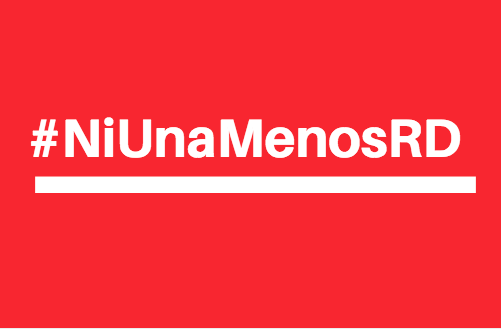The International Institute on Race, Equality and Human Rights together with Trans Siempre Amigas (TRANSSA), and the Observatory on Human Rights of Trans Persons request the immediate and effective investigation of the trans-femicide of Marisa Félix Sánchez
The International Institute on Race, Equality and Human Rights (Race and Equality), express its concern about the severe acts denounce by the civil society organizations Trans Siempre Amigas (TRANSSA) and the […]

The International Institute on Race, Equality and Human Rights (Race and Equality), express its concern about the severe acts denounce by the civil society organizations Trans Siempre Amigas (TRANSSA) and the Observatory on Human Rights of Trans Persons ( in Spanish ODHPT) related to the trans-femicide of Maris Félix Sánchez who was known as “Haitianita”. Marisa (registered as Richard Félix Sanchez), was a trans woman, afro-descendant, Haitian, sex workers of 30 years old.
According to complaints made by local organizations the acts took place on the early morning of October 15, 2018 in the municipality of Verón, Punta Cana where Marisa worked as sexual worker since 2015 at the Barceló Avenue of Verón. The public information available suggest that the body of Marisa was found on the same area. Sex workers, coworkers of the victim, assured that they saw Marisa leave with a client wearing a red t-shirt in a motorcycle, they also saw the same person arriving with her dead body. On images that are circulating through social media, it is possible to see Marisa’s bloody body, with a deep wound on the cranial area, with evident signs of violence.
Similarly, according to public information available, the local police went to the area and found a condom, which allows arguing that the acts could have been preceded by sexual violence.
Race and Equality, together with TRANSSA and, the Observatory on Human Rights of Trans Persons consider that the killing of Marisa is related to a deep-rooted context of crimes motivated by prejudice; specifically, a trans-femicide motivated to the female gender identity of the victim. Likewise, we notice with concern that this act is part of a severe context of physical and sexual violence, and killings of trans women that have been denounced systematically by local organizations like TRANSSA and the Observatory on Human Rights of Trans Persons.
Race and Equality call the attention to the local authorities to initiate an effective investigation of the acts immediately, taking into consideration the context of physical and sexual violence, that maid leads to the conclusion that it was a trans-femicide. All of these, in spite of the legal limitations on the Dominican frameworks that do not include the crime of trans-femicide, nor the gender identity of trans women as a relevant element of analysis during the criminal procedure.
Because the aforementioned legal limitations, and to avoid impunity, the International Institute on Race, Equality and Human Rights, call the attention to the local authorities to take into consideration the differential factors that are involved in the case, as the gender identity, race, vulnerability as sexual worker, and the nationality of the victim. We consider it is fundamental to analyze the best application of the articles related with homicide in the Dominican context. Similarly, we call the local authorities to have in mind that the facts could have been related to sexual violence either because of rape or sexual aggression, this is an independent aggression that must be thoroughly investigated.
The International Institute on Race, Equality and Human Rights on a joint statement with TRANSSA and, the Observatorio de Derechos Humanos de Personas Trans, extend a call to the Office of the Attorney General, the General Attorney Jean Alain Rodríguez, the Unit of Integral Attention of Gender Violence, Intrafamily and Sexual Crimes of Verón, Punta Cana, and to its public prosecutor, to investigate the acts, taking into consideration the multiple differential elements of the case. Likewise, we extend a call to the Inter-American Commission of Human Rights and its Rapporteurship of the rights of LGBTI persons, Women, and Afro-descendant persons; and the United Nations offices on the Dominican Republic and the United Nations Development Program (UNDP), to monitor the situation and follow-up the case closely.
Finally, we request to have all the criminal procedures exhausted to avoid the impunity of the dead of Marisa, because it is necessary that the Dominican government send a clear message of zero tolerance to the violence against trans women as part of the National Plan against Gender Violence, which was launched on November 8, 2017.
We invite you to follow the hashtag of zero tolerance to theviolence against trans women: #NIUNAMENOSRD

